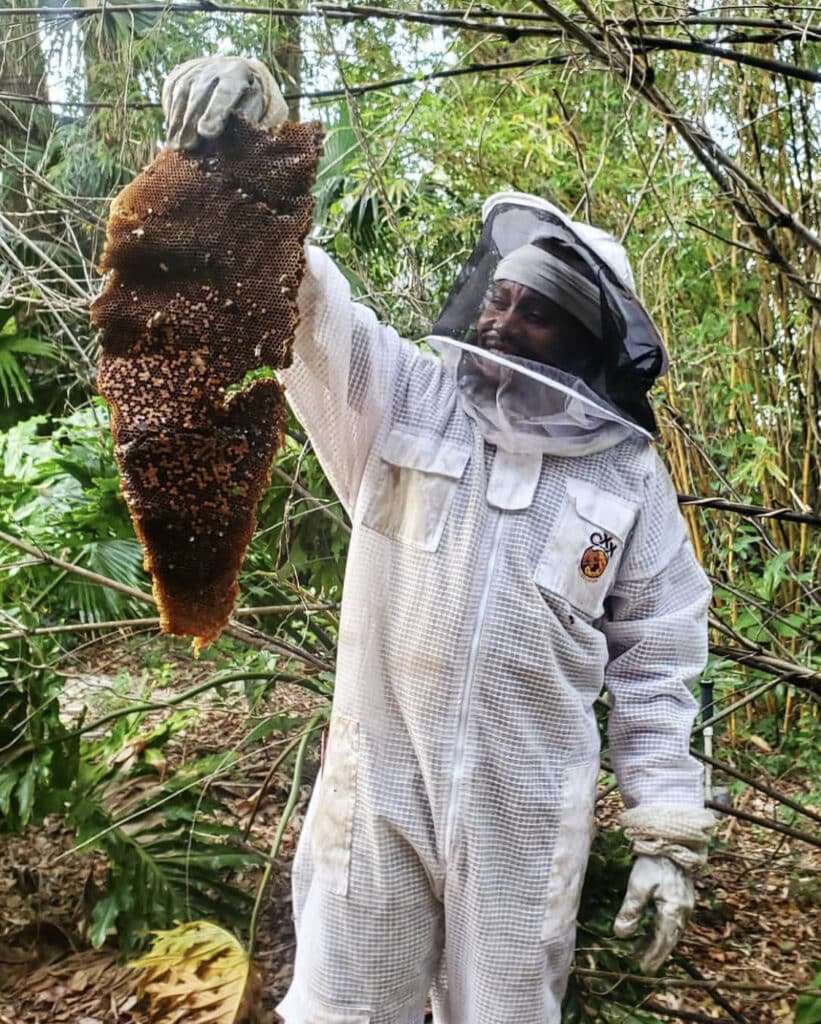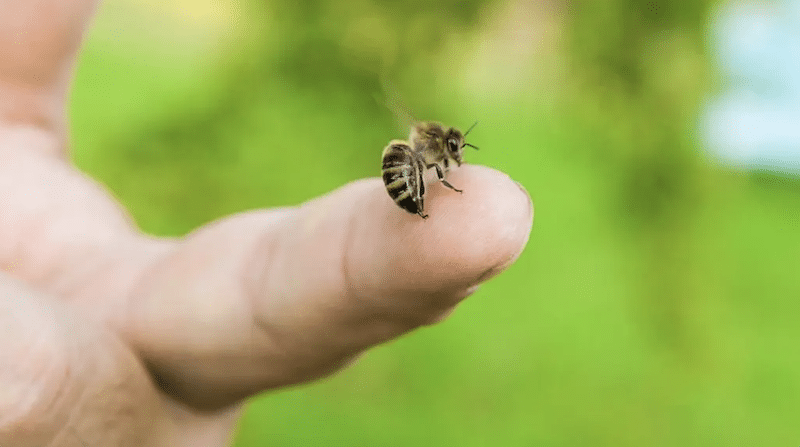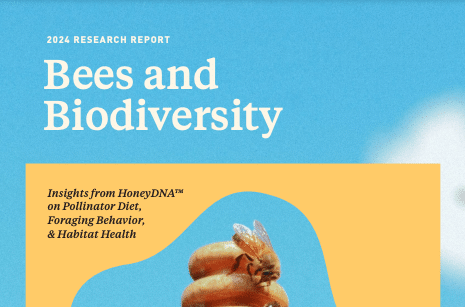Honey is a key ingredient in a lot of medicinal products. Not only is it one of the world’s oldest medicines, but it’s also high in antioxidants which can also promote eye health. In our latest installment of our #Next-Gen Beekeeper series, our Social Media strategist, Brittainy Schmus, interviews Alwyn “Oxx” Simeina aka Oxx the Beekeeper.
Oxx is one with nature and prides himself on preserving bees through pesticide-free hives. As a self-starter in the beekeeping community, he considers all the bees in the world as his pets. He treats the bees with love and care. In return, he’s learned to be less selfish because of how bees work together to promote the care for the hive as a whole.
According to Oxx, urban beekeeping is the future of beekeeping. It’s the most sustainable way for everyone to enjoy honey and all the benefits it provides.
There’s a lot to learn from their phone conversation including the ingredients to Oxx’s Flu Fighter, a honey-infused drink with healing properties. Check out their conversation below and consider trying the Flu Fighter for yourself.
Where do you live?
Orlando, Florida
Let’s get into it. What first intrigued you about bees?
Just the honey. Growing up in Ireland, we always use honey as a medicine. And my first real memory of it. Anyways, after Hurricane Hugo, when I first moved to St. Croix from St. Lucia, a tree fell and had a beehive in it. And we were kind of like running and then grabbing chunks of honeycomb and I’ve just never forgotten that ting growing up.
That’s amazing. And so what would you say was your first experience with bees or beekeeping? What really started that journey for you?
Well, that was when I was, let’s say, maybe eight years old. I didn’t start beekeeping until six years ago. When I sell local honey, I try to get the good stuff because I just know a little bit of honey. I didn’t know much. I don’t know, you always want to give them the good, harvested stuff like that.
I used to live in Jacksonville about six, seven years ago. I used to get it from a local beekeeper. And he said, “He’s gonna get out of it because of tests and different issues.” And I never understood what he meant. So I told him, I want to help you on your farm and you teach me how to keep the bees.
He kind of declined the offer and I pretty much went online and started, you know, reading books, went to seminars. I met a few other beekeepers, that you know, they helped me along the way.
So you were pretty much self-taught and you kind of just started that journey yourself?
Yeah, yeah. Pretty much.
So when you tell people you’re a beekeeper, what are their first reactions to that?
Laughter.
Yeah, I get mixed reactions. I get, “Really a beekeeper!?”
Or, I get “Okay. You’re a bookkeeper.” Then I tell them not books — bees!
They call me. They see the name of my businesses as beekeeping and then they’re calling me for bookkeeping services because they see my picture and they don’t believe it’s beekeeping.
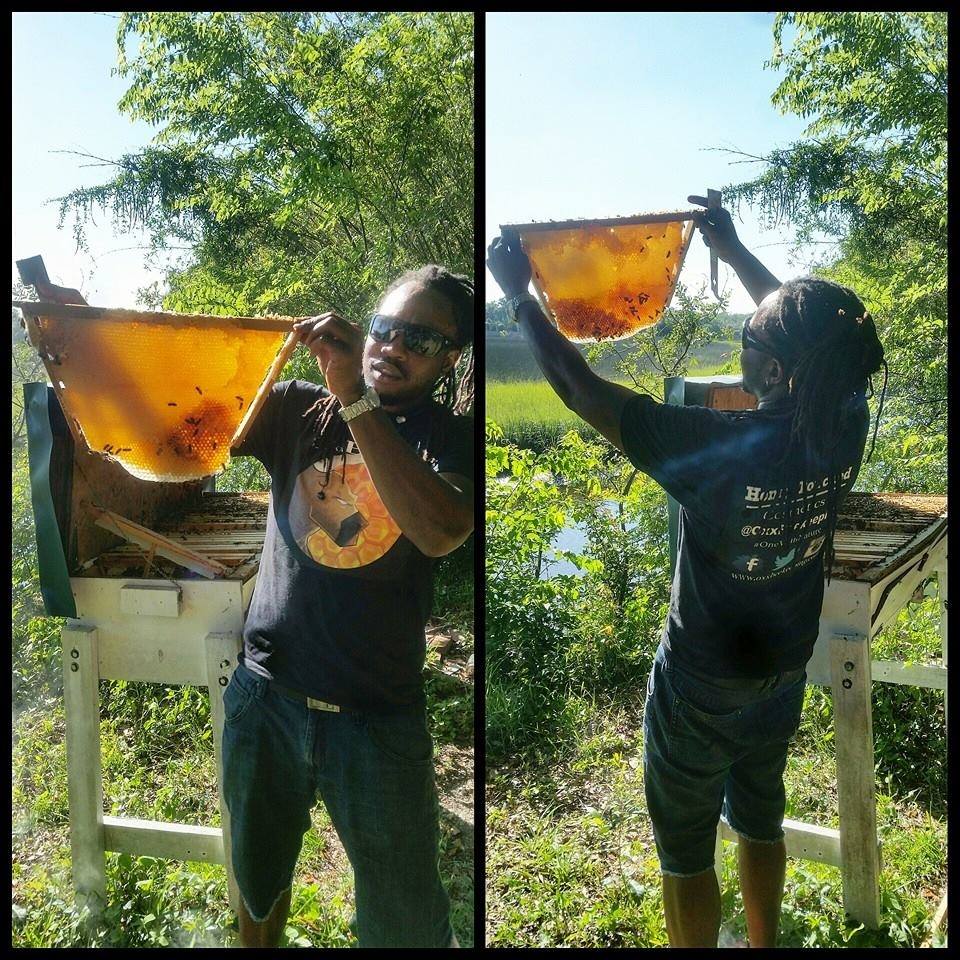
Oh, so there’s some kind of confusion there sometimes. That’s funny. What would you say is your absolute favorite part about beekeeping?
The fact that it changes so much. You can deal with one hive and they do one thing one way. They’re real gentle and produce a lot of honey. Another hive could be aggressive and they’ll produce a lot of honey too. Then you might have another hive for a year that won’t produce any honey.
The part that got me into it is the honey. I tried so many different honey in different countries and all different flavor profiles. You know, honey, can be made from every type of flower there is. So that’s kind of the biggest part. Just dealing with the bees and of their stings can kill you at any moment is just.. yeah.
So you say that you’ve tried a bunch of different honey, is there one location with that specific honey that really stands out to you?
I don’t want to be biased. I’m from St. Lucia and that’s some of the best honey I’ve ever tried.
Awesome. What would you say is your most memorable moment as a beekeeper? Is there a specific story or instance where you’re just like, wow, I’m going to remember that forever?
I do bee removal so that’s always opening a can of worms that you never know what you’re gonna get. So I’ve opened hives where I’m expecting a little bit of bees, but I’m seeing areas of bees, twenty-feet long honeycombs full of bees. That’s one of the hives I saw that I remember.
When you’re in one of those situations, what do you tell yourself? I mean, I’m sure you’re fine with it now. But when you’re first starting out, how did you kind of grapple with the fact that you’re about to be surrounded by so many bees?
Yeah, when I first got started, I used to wear two suits. I used to put duct tape on my feet, gloves. I used to be real scared of the process of the bees.
I used to tell myself holy sh**, I’m doing this?!
It’s a very scary feeling when you’re working with bees, there’s thousands and thousands of bees and they’re literally trying to sting you because you already told somebody that you got to take them out of the wall.
And so would you say are you afraid of bees now? And you know if you are or aren’t, what kind of advice do you have for someone who wants to start beekeeping but that might be you know, the one thing that’s holding them back a little?
I say treat them like your pets. When your pets smell fear that’s when they puff their chest up. Bees do the same thing, you just treat them with respect and hopefully they don’t sting, they don’t have an aggressive nature. They could be a little bit stingy depending on how you treat them. I don’t have any pets, so I call the bees my pets. There just happens to be thousands and thousands of them.
That’s cute. So what do you think is important about bees and the work you do to care for them?
My main thing about anytime I teach anyone anything about bees. I always tell them to stick to the natural way, don’t study beekeeping, study honeybees. Study how they interact in nature, the things that they do naturally.
We are as beekeepers, no matter how much we call it natural beekeeping, once you take them from their natural habitat and put them in an artificial box or lab, it’s not really natural anymore. That’s one of the things I always tell people. Just try to study them in nature and try to imitate the apiary. You know you’re going to use wood-wear and frames and stuff like that. The extra chemicals and things like that, I try to tell people to stay away from it unless you have to.
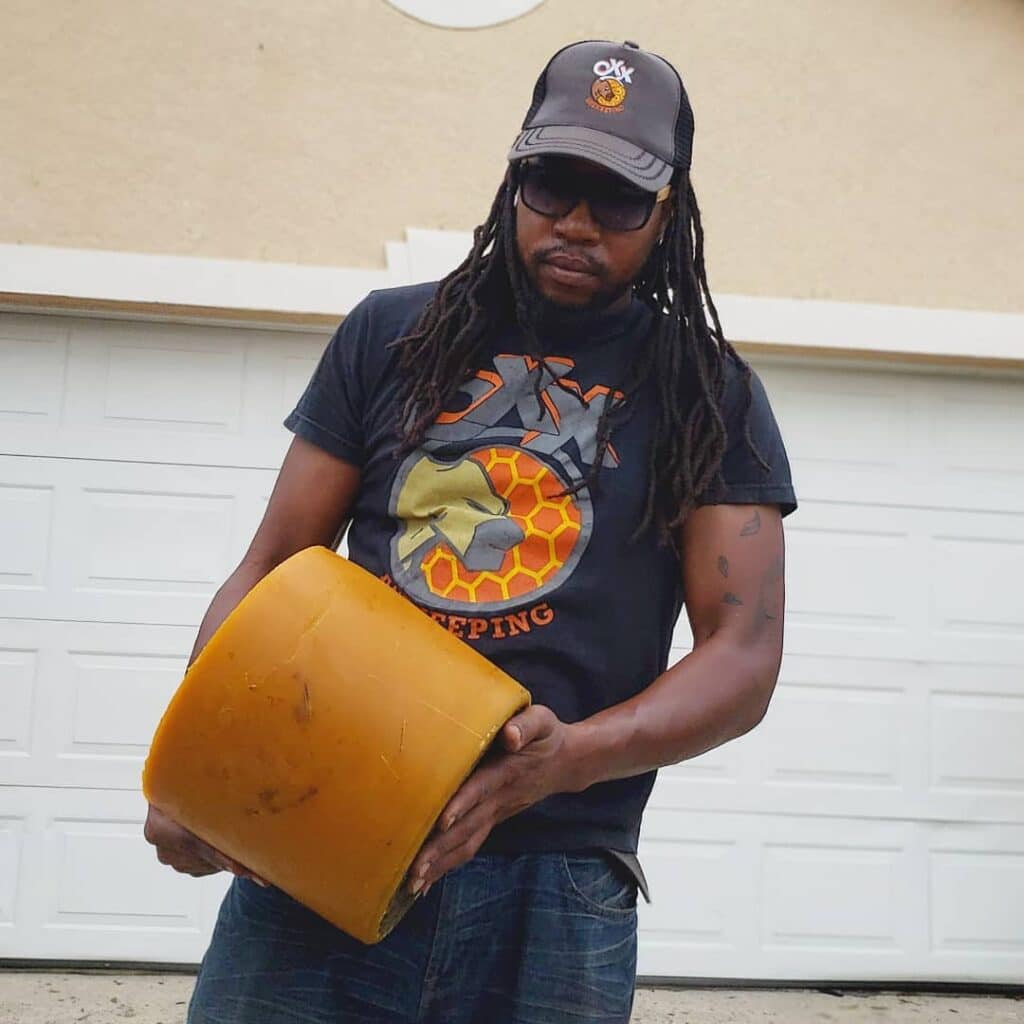
Got it. And so I guess that kind of leads me to my next question. How do you think being a beekeeper has impacted your worldview?
Oh, yeah that impacts my worldview a whole lot! A whole lot.
Yeah, when I found out that they are the most advanced super organism, because a lot of insects are considered super organisms, they happen to be the most advanced because of the fact that though they are reproductive females, they don’t reproduce unless the queen is gone, then their ovaries develop where they can lay drone eggs.
They don’t have a lot of selfish behavior. So that’s the part about bees that intrigued me.
We can learn so much from them. You’re totally right.
I was just talking about how we can learn more about them ]being a super organism is the fact that they work as a unit as a cause bigger than themselves as an individual.
I love that. That’s amazing. Where do you see the beekeeping industry in the next 10 or 20 years even?
I think it’s gonna go towards a lot of urban beekeeping. A lot more backyard hives. That’s the only way I think it could become sustainable because the commercial guys are doing it for the money, so they use a lot of chemicals, (pesticides). They take them to different farms and mix them with all the pesticides and the fruits and vegetables.
So when bees consume that nectar, they put it in honey that actually makes them sick. So those bees are the bees that you hear a lot of them collapse. The urban beekeepers go through that too, but it’s not as frequent.
I think we just need to start keeping bees more, responsibly. It could be something that everybody in the next ten years can do, everybody could have honey, which is one of the first medicines known to man. And so we can keep making fruits and vegetables because we definitely need those.
Yeah, I hope you’re right. And do you have any lessons for the readers of our blog and our followers on social media that you know for those who might want to embark on a similar journey as you?
If you follow my social media with my name, Oxx Beekeeping. That’s basically what I do, I try to teach people as much as possible. Any little information about beekeeping that way it can intrigue them so they can go, I never knew that! And that’s kind of what did it for me.
When I first started keeping bees, I decided for my first year I’m going to read instead of just jump into it. That was one of the best things I ever did, because I learned so much within that year that I didn’t waste a lot of time trying to take care of the bees and worrying about checking them every couple of weeks. And when I do check them, I need to add more boxes and right now I need to go buy more boxes and build frames and do all these motions instead I was just reading a lot, every morning and every night I would read a little bit.
And when I started keeping bees, I was amazed at how much knowledge I retained. How naturally it came to me that first, that first spring.
Wow. So the prep work ahead of time instead of diving right into it is totally worth it in your opinion?
Yeah, I think that’s key. I do a program in Florida where I give you the whole setup, you get the hive, the suit, the how-tos, and a pair of gloves. I basically started around September, and encouraged them to get books and to join their beekeeping association.
That way when springtime comes usually around March, April, when I deliver the bees, they already have some basic knowledge. And then when people see that they’re bringing the hives this time of year, that’s when they become interested and I usually tell them to start reading now and then next year, you’ll get your hive.
Oh, gotcha. Yeah, that’s a good way to phrase it. So what are you up to when you’re not beekeeping?
Oh, I also have a logistics company. I do trucking.
Do you have any other hobbies that you like? Or is beekeeping your 24/7 passion?
Yeah, I like beekeeping. I wish I could do it 24/7 but I have the truck. I also do fruit stands and that’s where I usually tell people a lot about honey and different things, like why bees are beneficial to the environment.
So you sell your honey at those fruit stands?
Yeah, I work at a farmers market in the neighborhood where I live.
Oh, that’s awesome. So I was just about wrapping up all the questions I had for you. But to the big ones first, what is next for you? What do you have coming down the pipeline?
I’m planning to open a wine mill. I want to also focus on doing more apitherapy therapy or start doing more stem therapy. We’re doing more apitherapy for people with lyme disease, and different types of ailments like nervous systems, immune systems and disease.
I’ve been actually seeing a lot more about that type of therapy on social media. I feel like it’s being more and more talked about lately.
Yeah. People that I actually help get rid of a few things. One guy, there was a patient that had numerous diseases, that’s when I first got started. And I saw him a few times for a week, and he got better. A year later, I didn’t hear back from him and then he told me at one point.
Then another young lady. She started to get symptoms of Lyme disease and the doctor told us she would have to get a shot, but with one of the side effects, she might go blind, so she didn’t want to take the shot. She contacted me and then I started talking to her about apitherapy and she did it for two, three weeks. Then four months after she went to her doctor’s appointment and they didn’t find any sign of the disease. I saw her color come back, her energy come back. I feel like it works.
Wow. That’s incredible. We can’t wait to read more and follow you on socials to see how that goes. In the meantime, aside from socials you said it was at @Oxxbeekeeping. How else can our readers and followers support you and the work that you’re doing?
You can go to my website. I sell natural products, I make body butters, lip balm, black soap infused with honey. I have hair balms; honey cacao — it’s chocolate from St Lucia with a little bit of honey and some cayenne pepper.
I also have some flu fighter with spices also from St. Lucia and the only thing that is local is the honey and the bee-bread which is fermented flour.
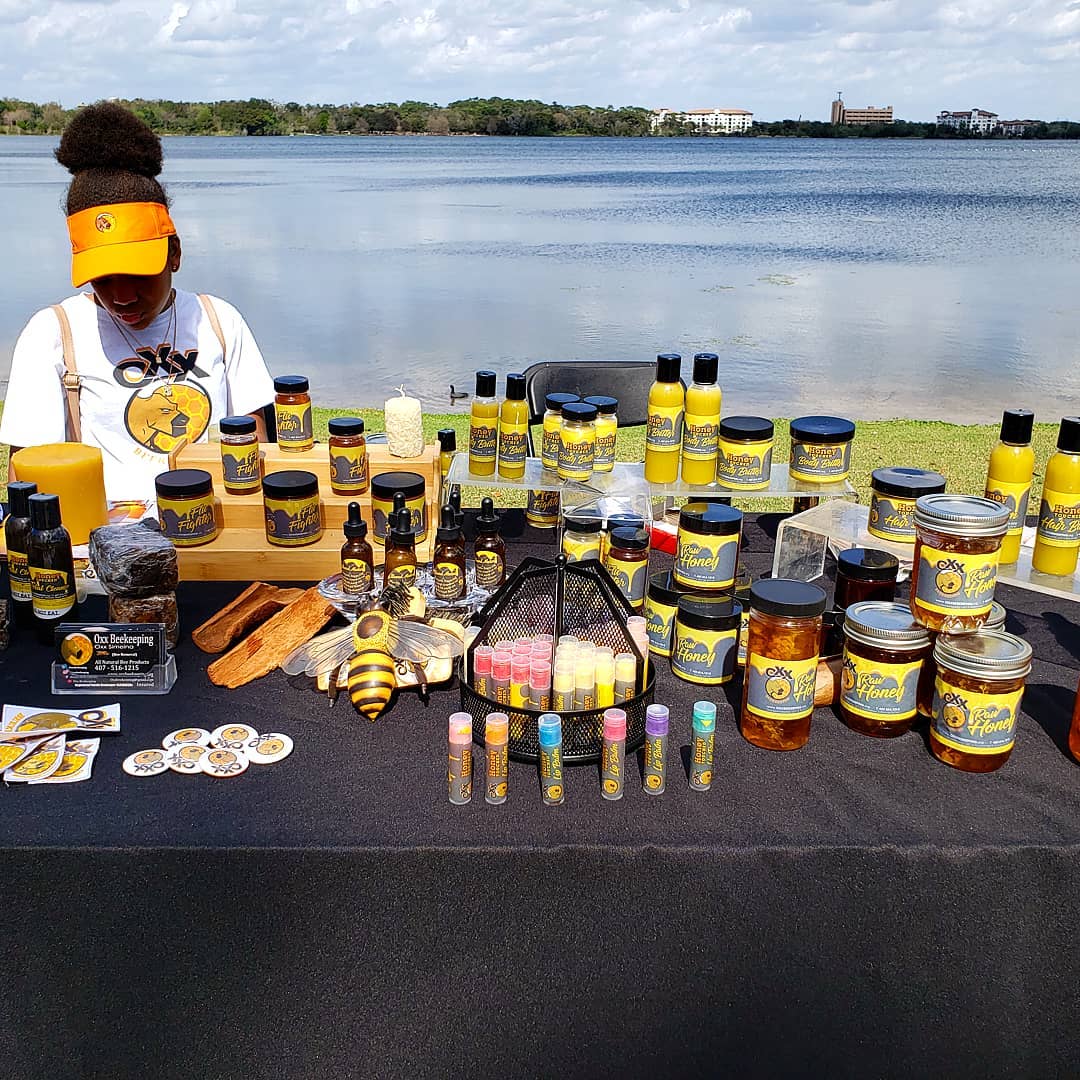
Wow. And so you said you call it the flu fighter?
Yeah, the flu fighter mainly because of the ingredients and the bee bread, nutmeg, turmeric, anice, clove, ginger, cinnamon and a little bit of cayenne pepper.
That sounds great.
I basically mix the spices based on when I started about each spice and really getting the full benefit for the body to absorb them. It’s better to make them like turmeric.
Turmeric is almost always good to absorb with salt and pepper. Nutmeg is good to be paired with cloves. The body absorbs clove, it’s an antiseptic.
Nutmeg helps with alzheimers and dementia and is a natural painkiller. Star anise is a key ingredient in a flu prescription and medication. That’s why I named it Flu Fighter.
I mean it sounds like all the range of products you have really show like the healing power of these. So we’re excited to have our audience come check it out. But that was the last question I have for you. Thank you so much for hopping on a call with me and letting us get to know you. Are there any questions you know you have for me right now?
Not at all. I just want to thank you guys. I appreciate you guys taking the time to interview me and working with my schedule.


